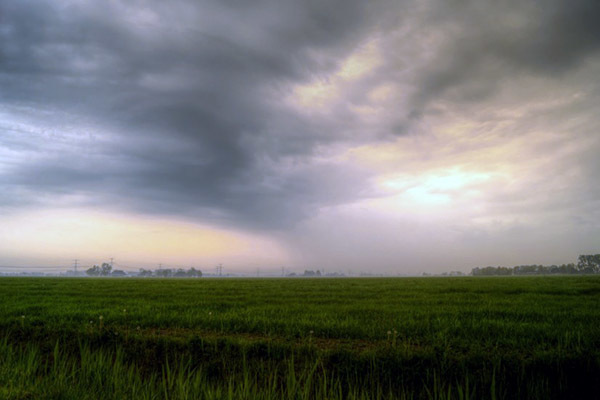Even with the stock market reaching all-time highs and many Americans smiling at the look of their 401(k) valuations, storm clouds are gathering in Washington and abroad that may mean higher costs for investors, lower returns, and less freedom to cash out when that rainy day comes.
If you are trying to save for retirement, college tuition, or a down payment, it is worth paying close attention to this unfolding debate on whether central planners in Washington should impose a virtual tax on mutual fund investors and interfere with their investments.
Mutual funds have become the preferred investment vehicle of a vast majority of the U.S. public. Investors pool their hard-earned money into funds, and the funds, in turn, hire professional money managers to buy securities with the investors’ money. These investments—made by both investors in the first place, and then by their funds—are almost entirely for cash. There is virtually no borrowing involved, by law with respect to mutual funds. Thus, the funds and their investors bear the losses but also reap the rewards.
Investors know this, and that is why they trust their money to a professional manager and why they like the ability to move their money around to different kinds of funds with different investment strategies.
Enter Dodd-Frank
Banks are different altogether. Savers are creditors, not owners, of a bank, and they have a government guarantee on their deposits, upon which they earn a very small rate of interest. Banks, in turn, borrow large amounts based on their savers’ deposits and their shareholders’ capital.
Unlike mutual funds, they “leverage” this money by borrowing.
Banks are a welter of assets and liabilities, complex products and maturity mixes, all deeply and fully woven into our financial system. A bank’s failure could send shocks—small ones, usually—through part of our financial system.
In 2010, Congress enacted the 2,300-page Dodd-Frank Act. It was sold as a just-add-water solution to the 2008-09 financial crisis, and as a safeguard against future meltdowns. One goal was to decrease leverage and systemic risk in the financial system, because Congress believed leverage was a major cause of the crisis. The statute requires regulators to take severe steps against banks to lessen systemic risk, mainly by requiring banks to raise more capital and lower their leverage.
To oversee this process, Dodd-Frank created the Financial Stability Oversight Council (FSOC), comprised of the heads of the financial services regulatory agencies. The council claims very broad power to designate certain activities, such as asset management, or companies and products as systemically important, subjecting them to Federal Reserve bank-style regulation, including leverage and capital requirements.
The council is doing just that—first with banks, then insurance companies and now, potentially, mutual funds. President Barack Obama’s independent insurance expert on the council issued a blistering dissent when it designated Prudential, the nation’s second-largest life insurer, as subject to this sort of regulation. It was, he asserted, unwise, unneeded, and harmful to insurance companies and their policyholders.
Not a Threat
Indeed, mutual funds, already heavily regulated, have shown they are no threat to the financial system, even during the last financial crisis. While hundreds of banks failed, sending reverberations throughout the financial system, mutual funds go out of business all the time with no systemic noise because they do not “fail”; investors hold their equity stake and simply ride their investment up or down.
What should investors fear from this designation process?
First, the Federal Reserve may impose capital requirements on your fund, meaning 8 to 12 percent of your investment would not be put to work, earning a rate similar to a bank account.
Investors might not be able to sell when and how they want. They might be asked to “take one for the team” in turbulent financial times, due to the restriction of sales of certain securities.
The Federal Reserve may also decide to create disincentives to selling fund investments by imposing fees for doing so, in effect saddling investors with a loss if they did precisely what any prudent investor or fund manager would do.
Even worse, mutual fund shareholders might have to pay into a bailout fund, in case a too-big-to-fail bank collapses. Dodd-Frank authorizes the taxing of FSOC-designated companies to pay into a TARP-style fund.
Capital markets are risk markets. Investors’ risks are not the same as banking risks, and they hardly pose a threat to the “financial stability of the United States.” Capital markets should not be subject to central planning by the Fed.
Invested capital has long fueled the extraordinary growth of U.S. entrepreneurial ventures and corporations. It is that record of vibrancy and resiliency that policymakers in Washington should seek to preserve, above all else.
Paul S. Atkins ([email protected]) is chief executive officer of Patomak Global Partners and served as a commissioner of the Securities and Exchange Commission (SEC,) from 2002 to 2009. This article is excerpted from the author’s remarks at the “Unaccountable Government in Action” Policy Briefing Luncheon of the Georgia Public Policy Foundation, Atlanta, Georgia, August 28, 2014. Used with permission.



